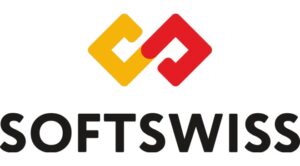Key Moments:
- 39 states have legalized sports betting, with seven states authorizing online casino gaming
- Marketing efforts by both major operators and smaller “guerrilla” affiliates have rapidly intensified across platforms
- Several states have already enacted bans on sweepstakes casinos amid rising calls for cohesive regulation
Rapid Marketing Expansion Outpaces Oversight
Gambling promotions have become omnipresent in the United States, driven by a tidal wave of advertising ranging from television commercials during the Super Bowl to influencer campaigns across TikTok and YouTube. An industry that began as a meticulously controlled rollout of sports betting and online casinos has evolved into a dynamic environment featuring widespread marketing and the rapid emergence of new market entrants.
Sports betting is now legal in 39 states, with seven states permitting licensed online casino operations. These licenses carry significant costs and have largely been the domain of major operators and affiliates. However, easier entry through legal loopholes has allowed sweepstakes and social casino operators to capitalize and proliferate, leveraging lower barriers and more accessible technology. Influencers linking up with offshore crypto casinos have further expanded the marketing footprint, fueling growth that continues to outpace the establishment of regulatory safeguards.
Parallels with Europe’s Regulatory Journey
The American experience shares striking similarities with Europe’s earlier expansion of online gambling. Europe witnessed rapid market growth when the Malta Gaming Authority license allowed wide access across borders. Initially, only large firms could compete, but falling technological barriers spurred an influx of competitors, resulting in a surge of promotions and ultimately tighter regulation nation-by-nation.
This competitive environment forced European governments to impose controls on advertising and to maximize tax revenue, fundamentally reshaping the marketplace. The effectiveness of these measures remains under discussion, yet it is clear they altered the industry’s trajectory.
Influencer Culture and the Shift in Promotion
In the U.S., heavy restrictions on market entry exist alongside unchecked promotional tactics. Major companies pursue prime advertising spots through sports and entertainment partnerships, while smaller actors thrive via digital channels and social media. High-profile personalities, such as CasinoKing with his “I gamble $100 each day” videos, inspire a proliferation of content creators. Some emulate Las Vegas influencers but promote unregulated sweepstakes or social gaming instead of licensed platforms.
As a result, American audiences, including millions of younger viewers, are exposed to a relentless stream of gambling-oriented content every day, blurring the lines between entertainment and advertisement.
Regulatory Response and Industry Demands
Efforts by states such as California, Montana, and Connecticut to ban sweepstakes casinos signal increasing scrutiny, though consumer class-action lawsuits have typically been dismissed for jurisdictional reasons. Notably, demands for stronger rules have come not only from advocacy groups but also from established casino and iGaming operators, motivated by the desire for a level competitive landscape.
The lack of a federal regulatory system for sweepstakes casinos results in a fragmented patchwork, echoing Europe’s approach where each country maintains its own rules. This decentralization creates ongoing regulatory challenges that have defied resolution over the past two decades in the European context.
| State Regulatory Status | Sports Betting | Online Casino | Sweepstakes Ban |
|---|---|---|---|
| California | Varies | Not specified | Banned |
| Montana | Varies | Not specified | Banned |
| Connecticut | Varies | Not specified | Banned |
Uncertain Path Forward
With sweepstakes platforms attracting increased financial activity and mounting marketing efforts, expectations are building that U.S. authorities will be compelled to act. Industry observers point to the potential for federal intervention to provide consistency, improve enforcement, and safeguard consumers and legitimate businesses, although achieving such alignment remains a substantial challenge.
The debate in the United States is increasingly focused on whether policymakers can apply lessons from Europe to avoid repeating earlier missteps or whether the growth of iGaming will once again outpace regulation, perpetuating the cycle of reaction and catch-up in the global gambling marketplace.
- Author


